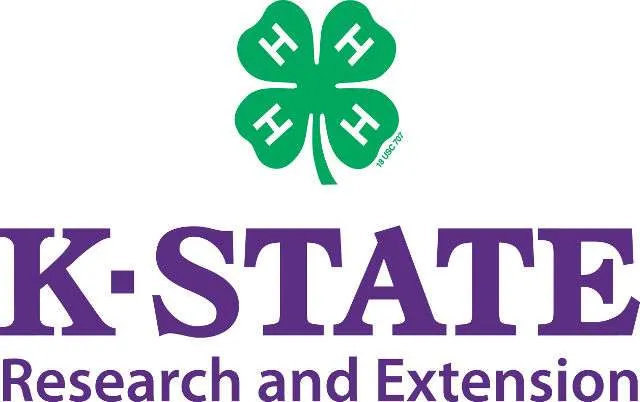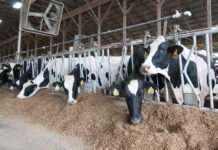Project urges 4-H kids to build – and program – robots
MANHATTAN, Kan. – Somewhere in the midst of children laughing and small toys constructed of interlocking plastic bricks gobbling up one another, Macy Hynek is smiling.
The youth – between the ages of 6-18 – are playing a game of Hungry, Hungry Robot, a take on a popular board game by a similar name with plastic hippos as the centerpiece. Most in the small room see toys powered by computer circuits, but Hynek sees something else.
“These toys,” said Hynek, a 4-H Youth Development agent with the River Valley Extension District in northcentral Kansas, “have really opened the kids’ eyes to what the future looks like and what our everyday technology looks like.”
Hynek leads the River Valley District’s robotics program, which encourages youth to explore science, technology, engineering and mathematics – commonly called STEM – in their world.
“Research shows that the younger we start our youth in STEM, the better they are throughout their life,” Hynek said. “So if you introduce them at a young age and continue to introduce these concepts throughout their life, they’re not only likely to succeed in the STEM area, but other aspects of their life.”
The youth have programmed the robots to perform any number of movements or actions. Those aged 6-15 have encoded robots named ‘Cue’ or ‘Dash’ manufactured by the Wonder Workshop, a Silicon Valley education and robotics company. Older children, ages 15-18, have built their robots from Lego blocks using a popular kit from that national company.
“We’ve taught youth to code (program) so that they can use their robots in competition,” Hynek said. The recent Hungry, Hungry Robot contest drew 22 competitors from Clay, Cloud, Republic and Washington counties.
The goal, she said, is “to make kids aware of the things they can do in their future and how they can come back and impact local communities in Kansas.”
In surveys, youth report the project has inspired them to pursue engineering-related careers, according to Hynek.
“That’s satisfying to see,” she said. “They may or may not become an engineer; who knows? But just to have their interest in robotics is a win for us. We’ve introduced something new into their lives, and those are skills that they’ll take into anything they do as technology becomes a demanding thing in every profession.”
More information on the River Valley Extension District’s robotics program is available online. Information on many other programs is also available on the Kansas 4-H Youth Development website.
-30-
FOR PRINT PUBLICATIONS: Links used in this story
River Valley Extension District, www.rivervalley.k-state.edu
Kansas 4-H, www.kansas4-h.org
K State Research and Extension is a short name for the Kansas State University Agricultural Experiment Station and Cooperative Extension Service, a program designed to generate and distribute useful knowledge for the well being of Kansans. Supported by county, state, federal and private funds, the program has county extension offices, experiment fields, area extension offices and regional research centers statewide. Its headquarters is on the K State campus in Manhattan. For more information, visit www.ksre.ksu.edu
Story by:
Pat Melgares
785-532-1160
[email protected]
For more information:
Macy Hynek
785-632-5335
[email protected]




